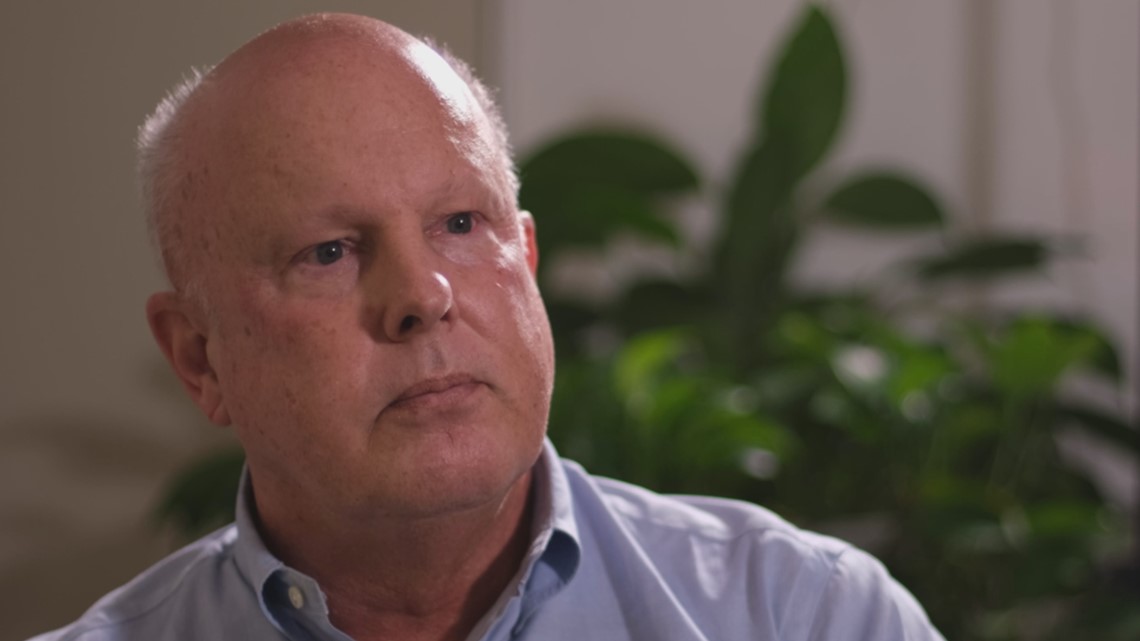MINT HILL, N.C. — Law enforcement agencies across North Carolina have received almost $300 million over the last two decades by partnering with the federal government to seize people's money, regularly doing so without ever charging those people with any crimes.
Opponents call it "policing for profit."
Bipartisan legislation making its way through Congress would end this controversial practice. The bill's sponsor believes the Mint Hill Police Department cash seizure WCNC Charlotte recently exposed makes the case for why the current law needs to change.
In that case, police partnered with a federal agency to take $69,000 in suspected drug money from a man they investigated for sex crimes. They never charged him with any drug offenses, but thanks to federal law, the department was able to keep the cash before his victim could sue the sex offender for compensation.
The Fifth Amendment Integrity Restoration (FAIR) Act of 2023 would end the Equitable Sharing Program, which Mint Hill police used to quietly collect tens of thousands of dollars from the child sex abuser three years before his criminal case even went to trial. His victim, now 17, cannot receive that money now as compensation for her pain and suffering, despite a judge's order.
"It makes me feel more resolved to get this legislation passed," Michigan Congressman Tim Walberg (R) told WCNC Charlotte. "At least the thought can come in people's minds, they changed their approach, and they rushed it more quickly in order to get that $69,000. It really ended up hurting the victim."


As WCNC Charlotte previously reported, a police officer assured the victim's family the $69,000 in suspected drug money investigators found inside her abuser's home would still be available when they were ready to sue him. They only recently learned the money was long gone by the time they filed their civil lawsuit.
"It just feels like three steps back, and it's honestly so frustrating and so difficult," the teen victim said.
Without them knowing, the police department partnered with a federal agency through the equitable sharing program and received $45,000 of the cash to buy generators. The federal government took the rest of the money.
"I just think this is completely unjust," the girl's mother said. "Just because you can do it, doesn't mean you should do it."
Rep. Walberg said his efforts to reform civil asset forfeiture are meant to force police to always act in the public's best interest. The lawmaker said the FAIR Act would still allow police to work with federal agencies for justified seizures but would prevent local police departments from collecting any of the assets, which eliminates the incentive. The money would instead go to the federal government's general fund.
"We're just trying to get that financial catch out of it," Rep. Walberg told WCNC Charlotte. "It's fair, it's above reproach and still can be effective."
WCNC Charlotte is always asking "where's the money?" If you need help, reach out to WCNC Charlotte by emailing money@wcnc.com.
The bill would also shift the burden away from property owners and create a higher standard of proof to protect the people whose money or property investigators seized.
"They would not be forced to prove themselves innocent, but rather the state and law enforcement have to prove them guilty," he added. "I think that is common sense, and I, for one, want to make sure criminals are busted, and they pay for their crimes, and any assets we can get justifiably that were used in committing a crime or assisting in a criminal activity, that we can use those."


Institute for Justice Senior Attorney Dan Alban told WCNC Charlotte it's long past time Congress acts to protect people's constitutional rights, especially since so many states, including North Carolina, have created stringent asset forfeiture laws.
"Civil forfeiture is an absolute outrage. It's inherently abusive, because it punishes people for committing a crime without convicting them with a crime and in many cases without charging them with a crime," Alban said. "The equitable sharing program simply allows local and state law enforcement officials to evade state law. It allows North Carolina law enforcement to completely bypass North Carolina laws and partner with the feds. That's a problem, it's not what the North Carolina legislature authorized and it needs to be stopped."
Alban cited his own group's research, showing when police seize money under the premise they're disrupting criminal activity, "forfeiture proceeds don't help [them] solve more crimes or reduce drug use."


Mint Hill Police Department attorney Scott MacLatchie said he supports the equitable program as it stands and stands behind the decisions in this case.
"I am at peace that we followed the law as it exists right now," MacLatchie told WCNC Charlotte.
Annual reports show Mint Hill police routinely partners with federal agencies, receiving nearly $900,000 in equitable sharing funds since 2018. The department reported using the money for training, equipment, operations and investigations.
"Is equitable sharing fair?" WCNC Charlotte asked MacLatchie.
"I believe equitable sharing is fair." he replied.
The victim's mother believes the $69,000 police seized should go to her daughter. She even secured a state judge's order saying the teen has a right to stake her claim.


"No amount of money will ever make my daughter whole. We thought that would help for her future and compensate her in some way," she said. "You're policing for profit."
MacLatchie maintains the family's court order has no authority, since the money went through the equitable sharing program three years prior.
Rep. Walberg expects the House to vote on the FAIR ACT in the coming weeks. The House Judiciary Committee unanimously passed the legislation back in June.
"If Congress changes the law, then we will certainly respect the law whatever that is," MacLatchie said.
Contact Nate Morabito at nmorabito@wcnc.com and follow him on Facebook, X and Instagram.
WCNC Charlotte's Where's The Money series is all about leveling the playing in the Carolinas by helping others and breaking down barriers. WCNC Charlotte doesn't want our viewers to be taken advantage of, so we’re here to help. Watch previous stories where we ask the question “Where’s the Money” in the YouTube playlist below and subscribe to get updated when new videos are uploaded.

